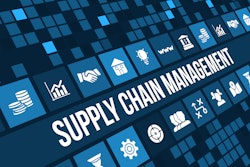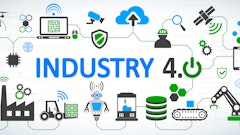
Chris Reeves, VP, pricing and network at WARP, is the driving force behind the expansion of WARP’s less-than-truckload (LTL) network, continually optimizing the network’s structure to meet the growing demands of clients while providing faster, more cost-efficient services. Reeves oversees the day-to-day operations, working to streamline processes and drive down costs while maintaining the highest standards for on-time delivery. He's also tasked with developing and refining WARP’s pricing strategy. By analyzing market data and operational metrics, he ensures the company’s pricing remains competitive, fair, and aligned with customer needs, driving profitability while maintaining value. Reeves is also committed to accelerating the release of new products and services, ensuring that WARP remains at the cutting edge of logistics technology.
Over the past 12 months, Reeves led the expansion of WARP’s LTL network, enabling the company to offer enhanced service coverage, reduced transit times, and more cost-effective options for clients. Under his leadership, WARP integrated with Project44’s visibility platform, providing customers with unmatched real-time tracking capabilities and predictive insights. This integration enhanced transparency, minimized delays, and optimized route planning, significantly improving service reliability. He also played a pivotal role in forming a strategic partnership with Priority1, which strengthening WARP’s operational efficiency and pricing flexibility. And, Reeves introduced a data-driven pricing strategy, ensuring that WARP’s pricing remained competitive while maintaining profitability.
Looking ahead, Reeves aims to expand WARP’s LTL network even further, adding more routes and optimizing existing ones to ensure faster and more cost-efficient service nationwide. He also plans to leverage cutting-edge AI and machine learning tools to further refine WARP’s pricing models, and, as part of WARP’s commitment to sustainability, he's focused on integrating more eco-friendly vehicles into the company’s fleet.
We talked exclusively with Reeves about collaborating with API integrators, refining pricing models and what it takes to build forward-thinking logistics ecosystem.
Supply & Demand Chain Executive: Let’s first talk about you. Tell me a little bit about yourself and your journey to get to this current stage in your career.
Chris Reeves: I’m privileged to lead Warp’s pricing and network design, where I’ve had the opportunity to transform how we approach logistics and supply chain solutions. My journey has always been driven by a passion for operational excellence and innovation. I’ve dedicated my career to solving complex logistics challenges, whether it’s expanding networks, optimizing processes, or creating pricing strategies that offer both value and profitability. What excites me most is the opportunity to be at the forefront of a rapidly changing industry—where data, technology, and strategic partnerships have the power to reshape how businesses operate. Warp is now a dominant force in the logistics industry, and I’m committed to pushing us further toward new frontiers of efficiency, customer satisfaction, and sustainable practices.
Supply & Demand Chain Executive: One of the things outlined in your submission is how you led the expansion of Warp’s LTL network. Walk me through what this expansion entailed.
Reeves: Expanding Warp’s LTL network was a pivotal step in our commitment to offering best-in-class service to our customers. It wasn’t just about adding more routes—it was about creating a more efficient and cost-effective network that adapts to the unique needs of each client. The expansion involved meticulous planning and analysis to ensure we could enhance service reliability and provide more flexible options across a broader geographic footprint. We didn’t just add new routes—we optimized our existing infrastructure, making our network smarter and more responsive. This expansion has been a game-changer, positioning us as a key partner in the logistics space and empowering us to offer tailored, scalable solutions to meet the demands of a dynamic market.
Supply & Demand Chain Executive: Also outlined in your nomination form is how you played a pivotal role in Warp integrating with API integrators and forming a strategic partnership with 3PLs through automation. What do these do and how do they impact the growth of Warp?
Reeves: Automation is everything these days. To be a top service provider you must use the best technology that is out there. The integrations and partnerships with SMC3, Banyan, and Project44 and the 3PLs were transformative for Warp, allowing us to offer unparalleled service reliability and flexibility to our clients. The partnerships allow Warp to quickly respond to our customers with real-time quotes, full visibility into their shipments and full transparency. The partnerships allow Warp to quickly add new lanes and give our customers immediate access to the new lanes. This is a huge competitive advantage, especially in an industry where timely communication and visibility creates a great customer experience.
Our collaboration with the integrators and 3PLs further strengthens our operational efficiency and enhances our pricing flexibility, allowing us to offer solutions that are more scalable and adaptable to customer needs. Together, these initiatives are driving Warp’s growth, positioning us as a cutting-edge logistics provider that not only meets but anticipates the needs of the modern supply chain.
Supply & Demand Chain Executive: Over the next 12 months, you plan to leverage AI and machine learning tools to further refine Warp’s pricing models. From where you sit, why are these emerging technologies so important to the future of supply chains?
Reeves: AI and machine learning are revolutionizing the way supply chains operate, and the logistics industry is no exception. These technologies enable us to take a data-driven approach to pricing, optimizing for both efficiency and profitability. By leveraging predictive analytics, we can adjust our pricing dynamically, ensuring that we remain competitive while offering our clients tailored solutions that meet their specific needs. But beyond pricing, AI and machine learning are helping us anticipate disruptions, optimize route planning, and enhance service delivery. These technologies are the future of logistics—allowing us to create smarter, more resilient supply chains that can adapt to the ever-changing demands of the marketplace.
Supply & Demand Chain Executive: If you could have a conversation with your younger self, what would you tell him?
Reeves: I’d tell my younger self to embrace every challenge and never underestimate the value of learning. The logistics industry is incredibly dynamic, and the key to success is staying curious and adaptable. I'd remind myself that true growth comes from stepping outside of my comfort zone and always seeking to innovate. I’d also emphasize the importance of building relationships—with customers, partners, and colleagues—because these connections are the foundation of success in this business. And finally, I’d tell myself to focus on the long game: every small improvement and every strategic decision contributes to a much larger vision.
Supply & Demand Chain Executive: The Top Transportation Innovators category recognizes professionals in the transportation space. What advice do you have for other transportation professionals in the supply chain space?
Reeves: For transportation professionals, the most valuable advice I can offer is to embrace technology and never stop innovating. The industry is evolving rapidly, and the future will be shaped by those who can leverage data and advanced technologies to improve operational efficiency. But technology alone isn’t enough—collaboration is key. Building strong, lasting partnerships with both customers and industry peers allows you to stay ahead of market changes and unlock new opportunities. Focus on sustainability, customer-centric solutions, and efficiency. Those who do will not only survive but thrive in the future of logistics.
Supply & Demand Chain Executive: What are some things not addressed above that would be pertinent to include in the article detailing your strengths, achievements, overall goals, etc.?
Reeves: At the heart of everything I do is a commitment to operational excellence and a relentless drive to exceed customer expectations. My focus has always been on creating scalable, adaptable solutions that meet the ever-changing needs of our clients. As we continue to expand Warp’s LTL network, we’re also researching how to drive sustainability, safety, and increase dock production— electric and hybrid vehicles, dock automation, and continuing to improve the apps we have developed. This is part of our broader vision to create a more forward-thinking logistics ecosystem while continuing to offer high-quality service. Ultimately, it’s about building a future-proof business that not only meets the demands of today but anticipates the needs of tomorrow.
By focusing on technology, sustainability, and customer-centric strategies, Warp is positioning itself as the partner of choice for businesses seeking innovative logistics solutions. We’re not just meeting expectations—we’re exceeding them, and we’re excited for the future we’re building together with our clients.





![Pros To Know 2025 [color]](https://img.sdcexec.com/files/base/acbm/scn/image/2025/01/Pros_To_Know_2025__color_.67856cb23da64.png?auto=format%2Ccompress&fit=crop&h=167&q=70&w=250)












